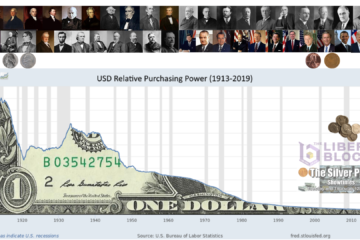Many Americans seem to regard the US Constitution as canon. Conservatives love the Constitution so much, that an increasing number of them seem to be identifying more as ‘constitutionalists’ than as conservatives or Republicans. Over the past few years, I have come to believe that the Constitution is incompatible and maybe even harmful to freedom. I can’t speak for the authoritarian socialists, but I have argued with quite a few conservatives and libertarians over the past few years about whether the Constitution was a net benefit or detriment to freedom. “You can’t have freedom without the Constitution!” They keep yelling at me. Here’s why all believers in true freedom must stop using ‘constitutional’ arguments, and why they must thoroughly reject the whole anti-liberty document.
- The Constitution “has either authorized such a government as we have had, or has been powerless to prevent it.” – Lysander Spooner
I could not have said this any better myself. Every conservative and libertarian I ever met agrees that the US currently has too powerful a government and much too little freedom. We have a 70,000 page tax code, we each pay around 50% of our money to the government annually, millions of gun laws exist, free speech no longer exists, property rights are violated regularly by the government, we have no privacy from government agents, and all of the economy is controlled by politicians. So, either the Constitution created this horrible government, or it failed to stop it from becoming this bad. Either way, the Constitution is useless.
The truth is that politicians will never start obeying the constitution. In fact, they will only continue to violate it more severely each year. More taxes, more gun laws, less free speech, etc. Nothing short of a massive radical change such as rejecting the entire US Constitution will ever have a chance to change the government and restore freedom to we the people.
When politicians violate the Constitution, there is no punishment. If, for example, legislators who proposed laws that clearly violate the 2nd amendment (all laws relating to weapons or self-defense) were immediately hanged as per the punishment prescribed in the Constitution, maybe it would be worth a little more than the paper it’s written on. But the horrible document does not even mention any punishment for violating it! All laws in the US, states, and cities prescribe punishments for violating them. Laws are restrictions on the freedom of the citizens. We are punished for violating arbitrary victimless laws made up by politicians. The Constitution is the supreme law of the land and it created the entire government and its intent is to restrict politicians. But since it has no punishment for violations, it’s not much of a law; it’s more of a weak suggestion, which corrupt politicians totally disregard.
This argument alone would suffice for the article, as it logically cannot be refuted. But we have more.
2. The first point assumed that the Constitution was a perfectly pro-liberty document and that its issue was that it was too weak to enforce itself. If a libertarian were to actually read the Constitution, though, they’d discover that it grants government too much power and people too little freedom. Some examples include eminent domain and allowing the government to police itself. Eminent domain literally allows the US government to take private property as long as the government ‘compensates’ the owner of the property. Of course, this compensation is taxpayer money, can still be much less than market value of the property, and the owner has no choice in the matter. The US Constitution also allows the President, Congress, and the Supreme Court to determine how much power they possess. Since the 1800s, the court, congress, and the president have been granting themselves new powers on a regular basis. These new powers are rarely questioned by the weak and terrified citizenry. When challenged, the Supreme Court simply ‘rules’ that the government is not violating the constitution by granting itself the new power.
3. Consent of the governed is not a factor. While the Declaration of Independence does mention that a government is created with the consent of the governed, the Constitution rams mob rule down our throats. According to our constitutional system, all it takes to win an election is to have more votes than any other candidate for that office. Those who respect property rights and consent understand that no free person should be violated. You cannot take property from a single person without their consent, no matter how many other people consent to you taking their property. Unless a person wins an election with the votes of 100% of the people in their district, they are not in office with the consent of every single person. In fact, most politicians get a tiny percentage of the votes in a primary, and only around half of the votes of the few people who do vote in the general election. Trump won the 2016 election with fewer than a quarter of Americans voting for him – in the general election. In the primaries, Governors like Christie only attain around 3% of the vote, yet they become the ruler for all people, even the 97% who rejected his authority and gave him no consent to take their property or control their lives.
Of course, whenever I make these points, conservatives call me names and snap back some nasty comment about ‘elections having consequences’ or some other statist nonsense that is unrelated to the issue of consent. Those who obey the rules of debate and linear logic eventually must admit that they support majority rule and reject the idea that consent is always necessary. Indeed, if you believe in consent, you must be a voluntaryist, because elections inherently violate all those whose candidate did not win, and often even those whose candidate did win and betray their voters. If majority rule – the same exact mechanism of elections and democracy – is inherently moral, then all I’d need to do before taking your house from you is get a few neighbors to vote for me. The intellectual constitutional scholars argue that the US is not a pure democracy; that we are a constitutional democratic republic. They explain that we do have elections, but basic natural rights are off limits to politicians, and they cannot be violated, regardless of elections. This argument is totally wrong. The US is as close as a nation could get to a pure democracy. No rights are off limits to politicians’ whims in the US.
The fact is that the Constitution created a central government that somehow has the magic moral authority to rule over everyone, including those who do not consent to the politician being elected or taking their property. Furthermore, the Constitution created a government that will rule over those who are not even born yet! If every American in 1787 voted on and accepted the Constitution (they did not – only a few delegates supported the Constitution) then they might be subject to its product. But their children, their grandchildren, and immigrants who arrived in the US in 1960 were not at the convention and never accepted politicians’ rules. What if they do not consent to being abused and having 50% of their money taken to be used for political enrichment, waste, and tyranny? Screw them. They are losers. They lose the election. That’s what ‘constitutionalists’ believe.
4. The constitution is a living document. I am very well aware that democrats believe that the constitution is living and flexible and progressive. I am very well aware that conservatives claim to believe that the document is set in stone and should only be amended by the amendment process, if that. Yet, conservatives revere the supreme court and obey its authority. And guess what the supreme court’s primary duty is? To interpret the constitution! Each year, the high court reinterprets what they claim the authors of the constitution might have meant when they wrote it. Indeed, supreme court judges regularly re-write the constitution, and conservatives obey the rulings like patriotic sheep. If conservatives wish to keep condemning leftists for their ‘living document’ claims, they need to totally reject the supreme court.
5. Article 1, Section 8 of the Constitution gives the Congress massive and broad powers to control the lives of Americans regardless of whether they consent to being ruled by politicians. The section has many anti-liberty aspects, but I’ll list the few that I think are the worst.
The section begins by abolishing property rights and violating the consent of every American by ‘granting’ politicians permission to steal as much money as they want from all free citizens: “The Congress shall have power to lay and collect taxes, duties, imposts and excises”. If you believe that stealing (taxation) is wrong, you should hate the Constitution for ‘authorizing’ politicians to steal as much as they want from people like you and me.
Later in the same paragraph, the Constitution grants politicians broad, undefined powers to do anything that they claim to be beneficial for people: “provide for the common defense and general welfare of the United States”. Many authoritarian socialists consider this phrase to be their favorite part of the Constitution. Why would the founders grant Congress such broad powers?
Would you believe it if I told you that even the wonderful founders were fine with politicians racking up massive national debt on your behalf? The Constitution gives Congress express permission “to borrow money on the credit of the United States”. So much for the founders being ‘fiscally conservative’!
The same section grants our politicians the power “to regulate commerce with foreign nations, and among the several states, and with the Indian tribes”. This is another phrase often cited by authoritarians of all types in the US government in order to justify economic regulation. Due to the internet’s function, nearly every business in the US could be considered to have the potential to cross state lines. This allows the federal politicians to cite the ‘commerce clause’ found in Article 1:8 to justify regulating the business into submission. Over the last few decades, these politicians have caused our economic freedom ranking to plummet, which has hurt our economy immeasurably.
Perhaps the worst thing about the Constitution is that it prescribes no punishment for those who violate it. Unlike the very specific punishments that citizens suffer when they merely violate a law, politicians never get punished for violating the ultimate law of the land. So, those in government violate the Constitution with increasing frequency and intensity. And there is nothing we can do about it.


